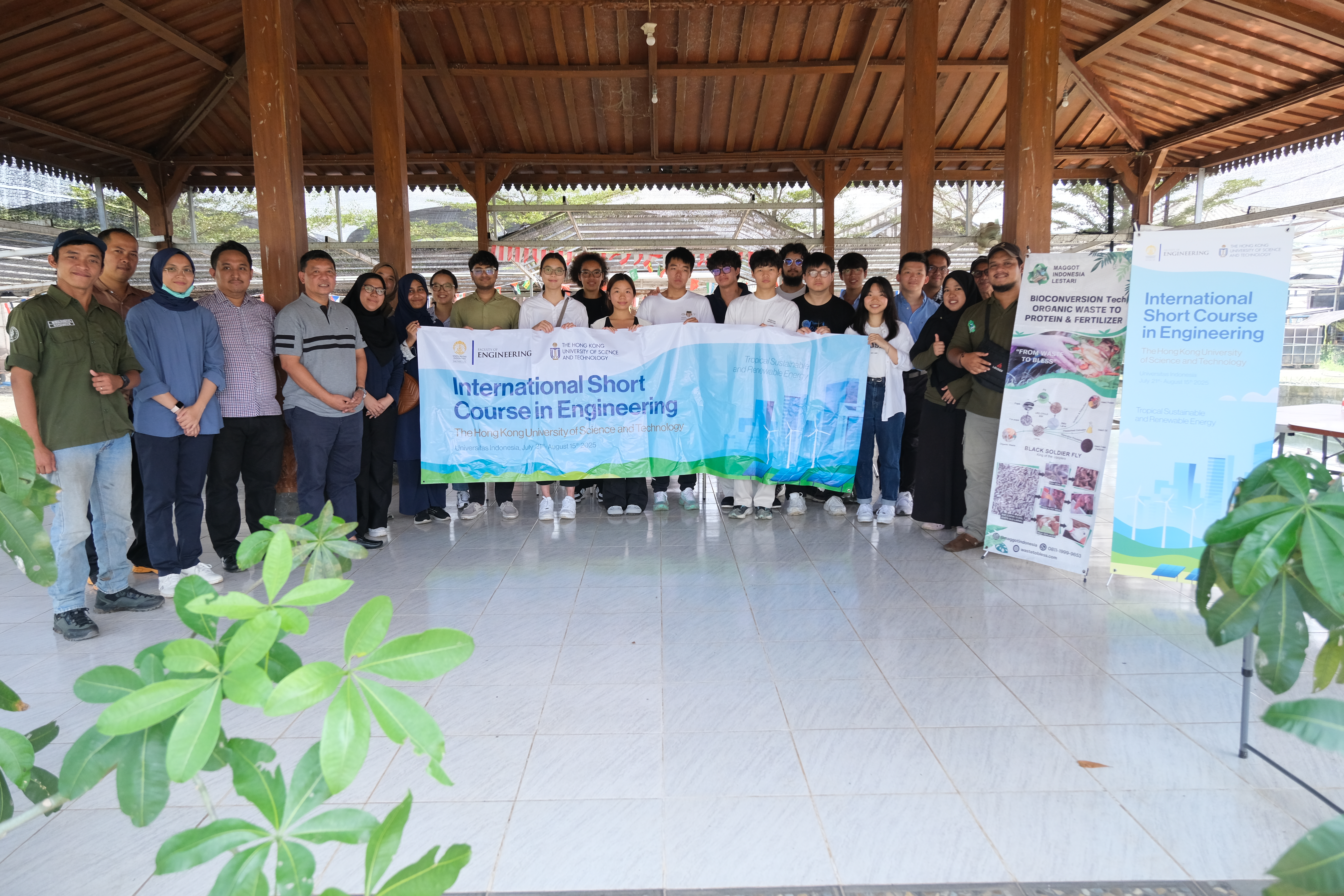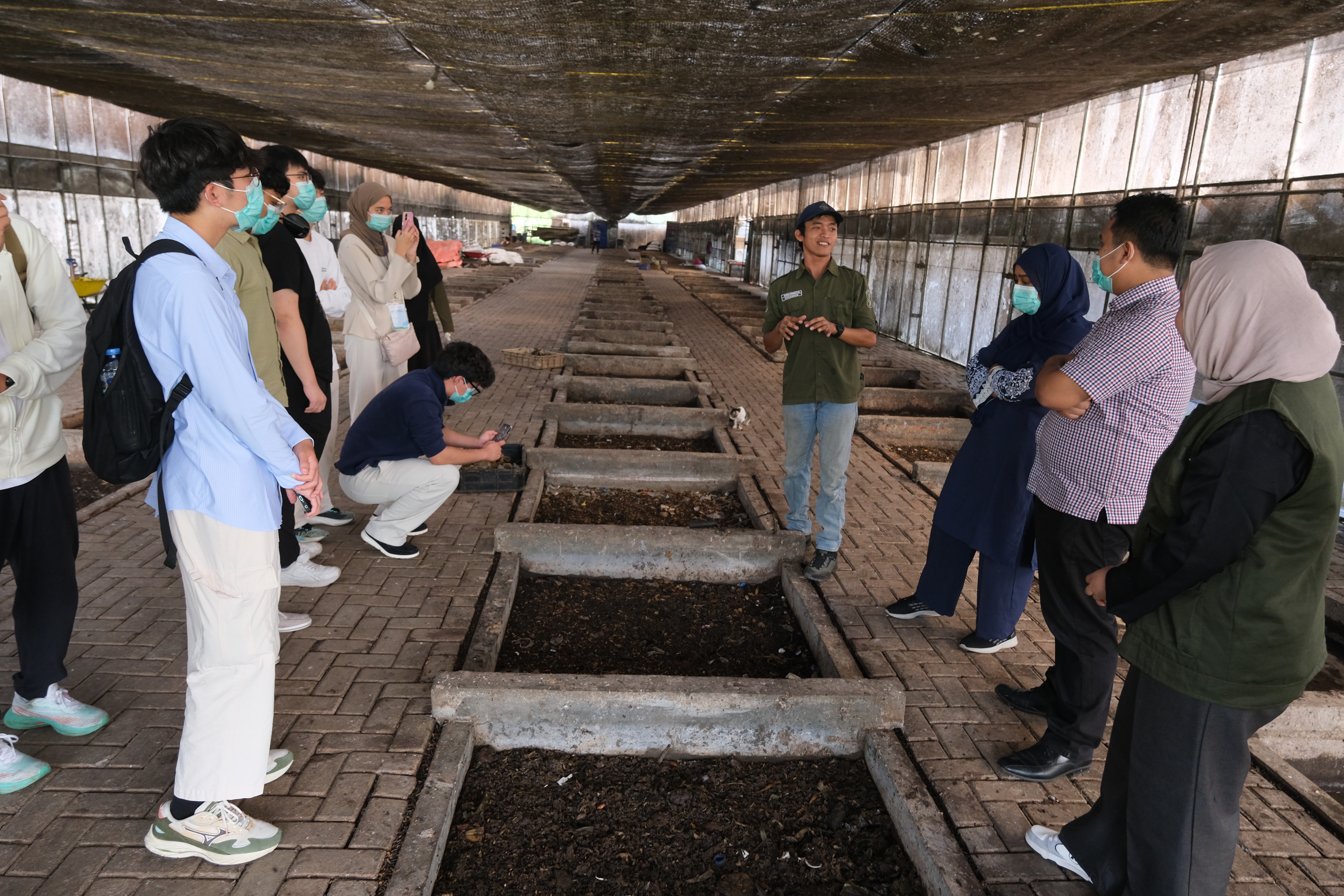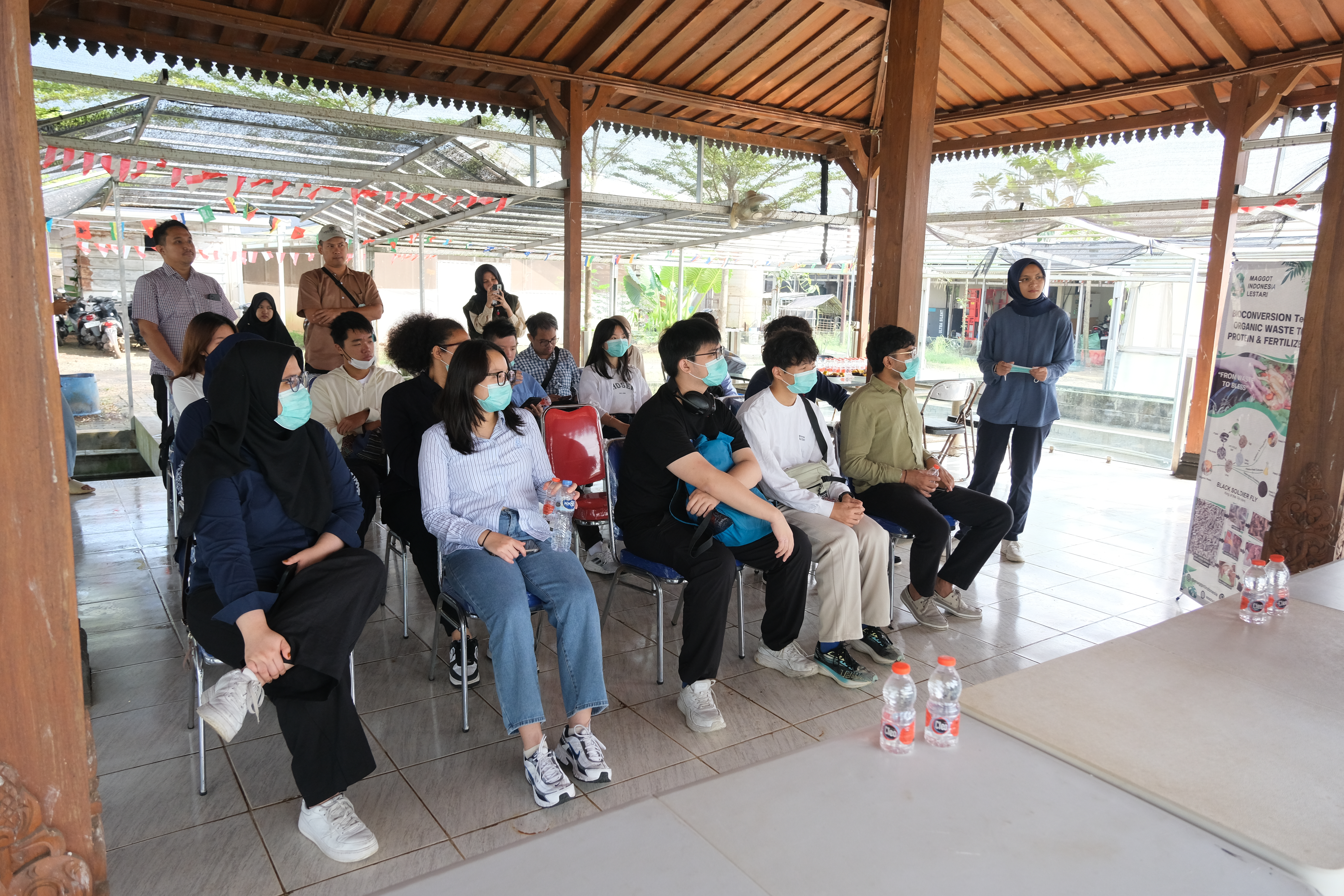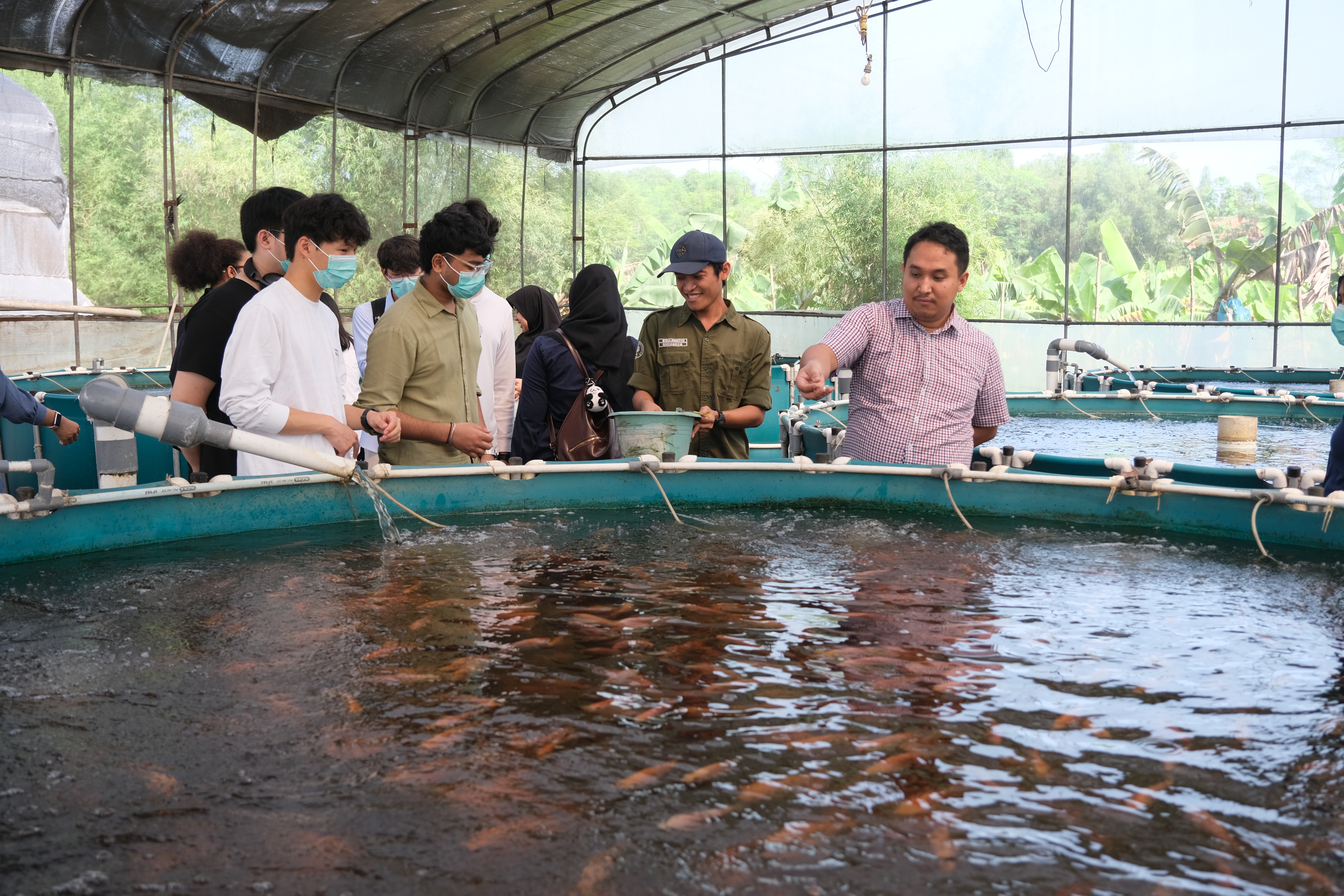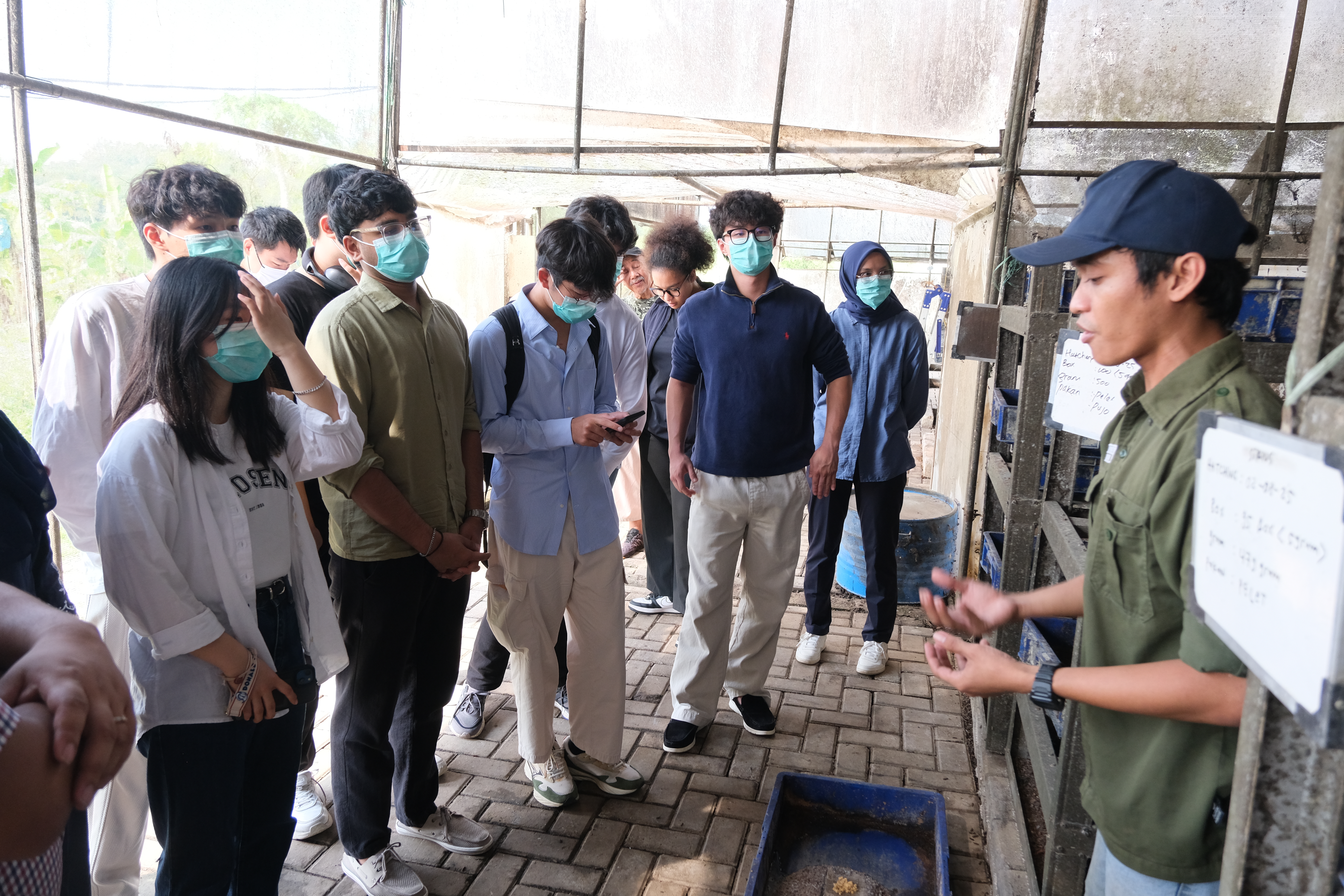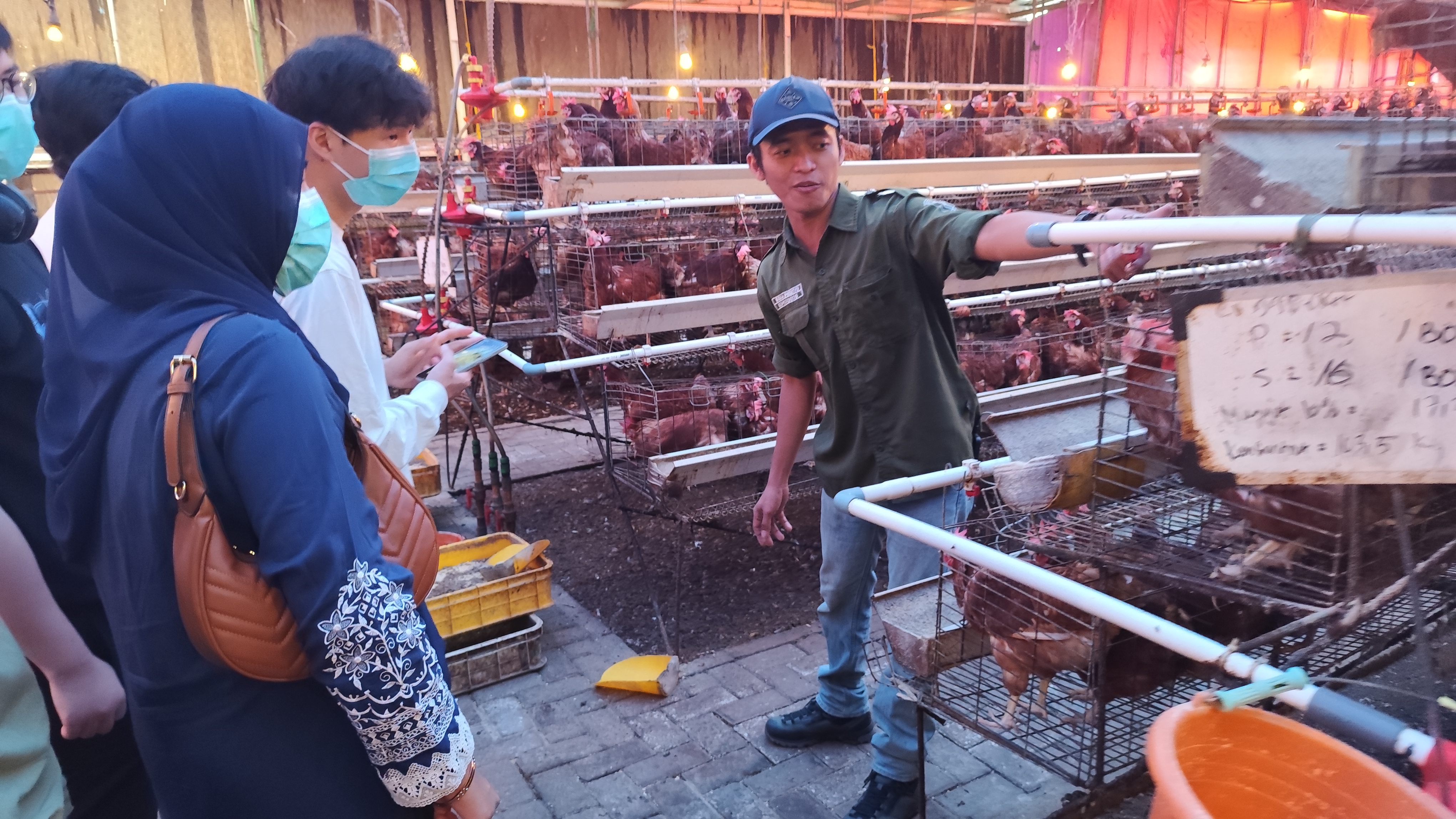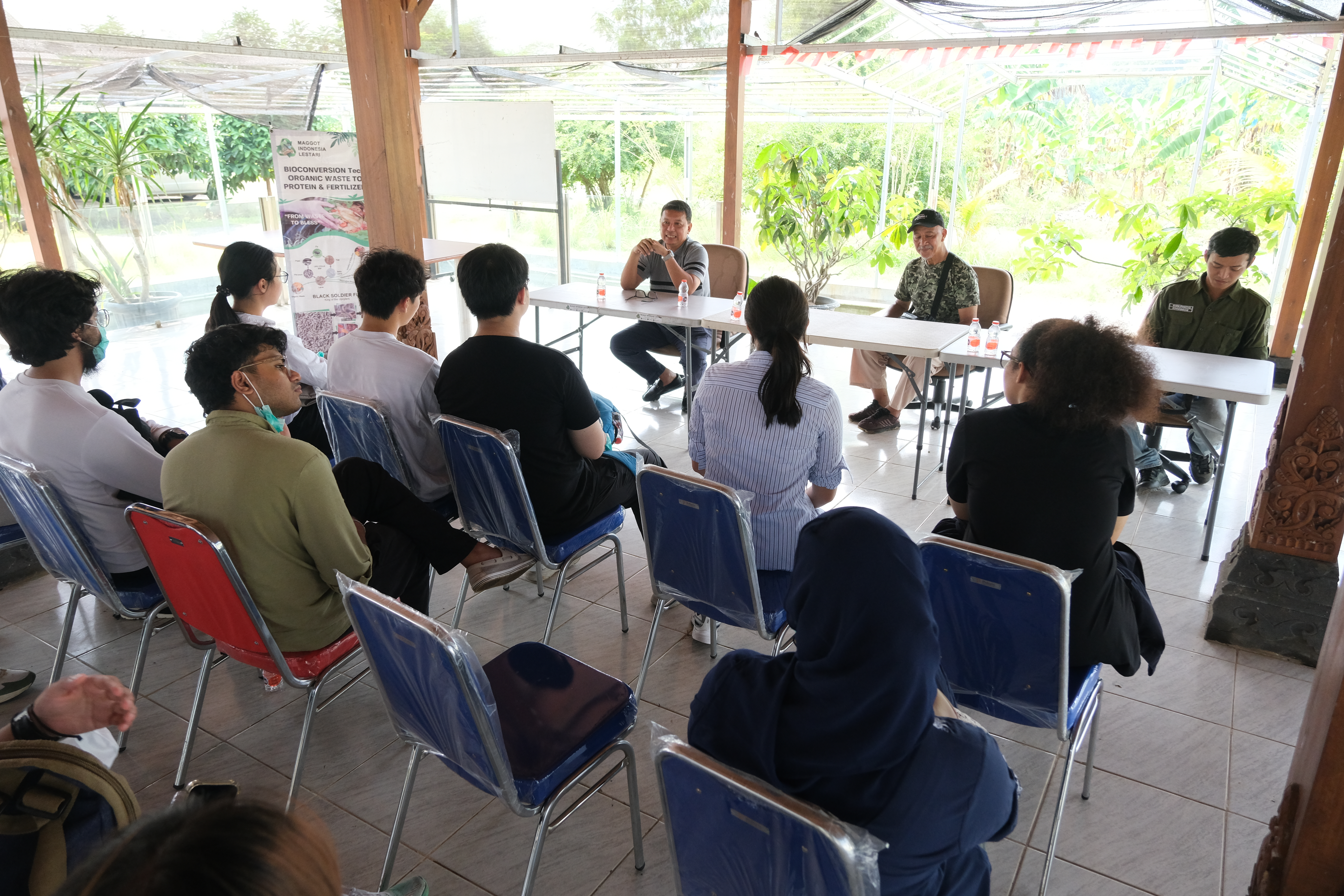Students from the Hong Kong University of Science and Technology (HKUST) together with students from the Faculty of Engineering, Universitas Indonesia (FTUI) conducted an industrial visit to the Bioconversion Center of PT Maggot Indonesia Lestari (MIL) in Bekasi Regency (04/08). This activity is part of the International Short Course themed “Tropical Sustainable and Renewable Energy” organized by FTUI from July 21 to August 15, 2025.
In the bioconversion facility, participants learned about the life cycle of Black Soldier Fly (BSF) larvae starting from the egg phase, larvae (maggot), pupa to adult flies—along with how the larvae are utilized to process organic waste into value-added products. The location of the MIL bioconversion center that was visited is in Setu District, Bekasi Regency, which has recently been a reference point for local governments in managing waste based on a circular economy.
During the tour, students witnessed the practice of using maggots as alternative high-protein feed. In the farming unit, fresh maggots are combined with concentrates to feed layer hens, producing eggs with better omega content. Additionally, maggots are also used as feed for Nile tilapia that are farmed internally, thus reducing feed costs while sustainably utilizing organic residue.
PT Maggot Indonesia Lestari introduced participants to other benefits of BSF bioconversion technology, including: significant reduction in organic waste volume (up to about 70% in a relatively short time), production of BSF compost/castings for fertilization, and dried maggots/maggot flour as raw material for animal feed. MIL also conducts education and integrated BSF farming training for government agencies, private sectors, and universities.
One participant from HKUST, Ruth, expressed her admiration for the innovations implemented by PT Maggot Indonesia Lestari. “I am truly impressed to see how something that was initially considered waste can be transformed into high-nutrition feed for chickens and fish. This is not only an environmental solution but also a very sustainable food solution. This experience opened my eyes to the importance of technological collaboration to address global issues,” she said.
Andre Fahriz Perdana Harahap, S.T., M.T., Ph.D., a lecturer at FTUI who accompanied the group, assessed that this visit provided valuable practical experience for the students. “Through this activity, students can directly understand how the circular economy concept is applied in the industry. They learn that waste management is not just an environmental issue, but also an economic opportunity and technological innovation that can be further developed,” he explained.
With direct experience in the field, participants of the FTUI–HKUST short course gained a comprehensive perspective on the application of renewable technology and the circular economy, from laboratories to industries, as well as opportunities for cross-disciplinary collaboration to address the challenges of waste management and food security in urban areas.
Public Communication Office
Faculty of Engineering, Universitas Indonesia

